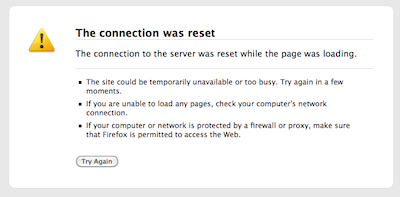Did the Chinese censors stop worrying about Google?
We continuosly monitor more than 5000 keywords on Google, of which almost 2000 are currently blocked in China. Usually this number changes with current events. For example, when http://www.bloomberg.com was blocked in June, the keyword {{google:bloomberg}} was blocked as well. In March, when there were rumors of a coup, {{google:政变}} was blocked. And as the Bo Xilai scandal unfolded, you could not search for {{google:Heywood}}. However, in the whole month of September, we didn't detect one single new keyword being blocked on Google. One keyword was unblocked ({{google:亡国}}).
It's not as if the authorities didn't have anything to censor - the conflict with Japan as well as the upcoming leadership transition provide plenty of material. And indeed, they are censoring - on Sina Weibo and probably other local websites, but apparently not on Google.
Google vs Sina Weibo
Three seemingly sensitive keywords that were blocked on Sina Weibo during September are:
- {{weibo:克强}} (as in 李克强, Li Keqiang, the upcoming premier of China)
- {{weibo:自焚}} (self-immolation)
- {{weibo:张培莉}} (Zhang Peili, wife of Wen Jiabao, the current premier of China)
However, none of these keywords have been blocked on Google:
- {{google:克强}}
- {{google:自焚}}
- {{google:张培莉}}
At the same time, four sensitive keywords that were unblocked on Sina Weibo in September are:
- {{weibo:薄熙来}} (Bo Xilai, the previous mayor of Chongqing and Politburo member who was recently ousted from the Communist Party of China)
- {{weibo:抗议}} (protest)
- {{weibo:大使馆}} (embassy)
- {{weibo:日领馆}} (Japanese Consulate)
Again, on Google, none of the keywords have changed - the first one has stayed blocked, and the other three were never blocked in the first place:
- {{google:薄熙来}}
- {{google:抗议}}
- {{google:大使馆}}
- {{google:日领馆}}
Is it because of Googles censorship transparency feature?
In May this year, Google introduced a new feature which warns users that the keyword they are searching for may be censored. It makes the censorship more obvious, and more difficult to confuse with technical errors. The authorities initially tried to block the new censorship warning, but Google quickly improved their approach to make it more difficult to interrupt. Since then, the censors seem to have left Google alone.
| Before May, 2012 | After |
 |  |
Is it because of a falling market share?
Google's share of the online search market in China at the end of 2011 was 16.7% according to MarketWatch. Google.com.hk is ranked 5th and Google.com 10th among the top sites in China, according to Alexa. Perhaps the authorities are deprioritizing Google since only a minority of users ever use it.
Is it because search is harmless compared to microblogs?
Another possible reason is that the authorities simply worry less about access to information (through search) than the creation of information (through microblogs). A recent study by Harvard supports this, claiming that
Contrary to previous understandings, posts with negative, even vitriolic, criticism of the state, its leaders, and its policies are not more likely to be censored. Instead, we show that the censorship program is aimed at curtailing collective action by silencing comments that represent, reinforce, or spur social mobilization, regardless of content. Censorship is oriented toward attempting to forestall collective activities that are occurring now or may occur in the future.
In this context, search seems to pose much less of a threat than microblogs. So what about Baidu, by far the most widely used search engine in China? Let's have a look at the keywords we used for our Google vs Sina Weibo comparison above:
- {{baidu:克强}}
- {{baidu:自焚}}
- {{baidu:张培莉}}
- {{baidu:薄熙来}}
- {{baidu:抗议}}
- {{baidu:大使馆}}
- {{baidu:日领馆}}
Indeed, there were no changes on Baidu concerning any of these keywords either (though we don't have data prior to September for the third and fourth of them so we can't be sure). Overall though, it does seem to suggest that there's much less movement in terms of censorship on search engines now than on microblogs such as Sina Weibo.
By the way, Picasa Web, Groups and Drive
https://picasaweb.google.com was blocked in September. Notice the S in https:// - the non-encrypted version http://picasaweb.google.com was blocked before as well. Amazingly, https://www.google.com.hk is still not blocked, allowing those Chinese users who know about it to search for any of the thousands of keywords that would otherwise be blocked.
In other good news, both https://groups.google.com and https://drive.google.com were unblocked in September and seem to work rather well in China as this is written.
Google Plus and YouTube next?
